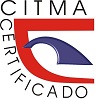Modelación de gestión formativa de la educación energética. Un enfoque axiológico, en la Educación Preuniversitaria
Modeling of formative management in energy education: an axiological approach in pre-university education
Palabras clave:
Modelación, formativa, gestión, educación, energéticaResumen
La gestión formativa de la educación energética con un enfoque axiológico se ha convertido en un objetivo fundamental para formar a las nuevas generaciones en un contexto, donde se busca fomentar la conciencia sobre el uso responsable de la energía y la preservación del medioambiente, reconociéndose su importancia para la estabilidad y supervivencia del ser humano. Al ser la educación energética un proceso formativo que debe promover la responsabilidad, respecto al entorno, este trabajo tiene como objetivo elaborar un modelo de gestión formativa de la educación energética con un enfoque axiológico; cuya aplicación práctica, permite considerar su nivel de significación, convirtiéndose en un recurso teórico-metodológico valioso, a través del cual, los directivos y docentes de la Educación Preuniversitaria, reconceptualizan e interpretan su proceder con relación a este tema. Lo cual resultó factible; a partir de la aplicación de diferentes métodos e instrumentos que posibilitaron la recogida de información relevante, que condujo a aportar una vía de solución que asegura los procesos de sensibilización sobre el tema energético, mediante una relación dialéctica que ofrece la posibilidad de integrar diferentes subsistemas que favorecen la atención de dicha problemática. Erigiéndose así, en un mecanismo clave para inculcar el respeto por el mundo circundante, desde el espacio académico y extracurricular que se promueve en el nivel educativo que constituyó la unidad de observación de esta investigación.
Abstract:
The formative management of energy education with an axiological approach has become a fundamental objective for training new generations in a context where awareness of the responsible use of energy and environmental preservation is sought, recognizing its importance for human stability and survival. Since energy education is a formative process that should promote responsibility for the environment, this work aims to develop a formative management model for energy education with an axiological approach. Its practical application allows for the consideration of its level of significance, becoming a valuable theoretical and methodological resource through which pre-university education administrators and teachers reconceptualize and interpret their approach to this topic. This proved feasible. Through the application of different methods and instruments that enabled the collection of relevant information, this led to a solution that ensures awareness-raising processes on the energy issue, through a dialectical relationship that offers the possibility of integrating different subsystems that facilitate addressing this issue. Thus, it became a key mechanism for instilling respect for the surrounding world, from the academic and extracurricular spaces promoted at the educational level that constituted the observation unit of this research.
Keywords: Modeling; trainin; managemen; education; energy
Descargas
Citas
Cardona, D., Tamayo, J., & Eslava-Garzón, J. S. (2024). Hacia una matriz energética sostenible en Colombia: Una revisión sistemática de la literatura. Informática y Tecnología, 35(5), 1-16. https://www.scielo.cl/pdf/infotec/v35n5/0718-0764-infotec-35-05-1.pdf
Deroncelé Acosta, Á. (2020). Gestión de potencialidades formativas en la persona: reflexión epistémica y pautas metodológicas. Universidad y Sociedad, 12(1). http://scielo.sld.cu/scielo.php?script=sci_abstract&pid=S2218-36202020000100097
Díaz-Canel Bermúdez, M. M. (2023). Gestión de Gobierno basada en ciencia e innovación: avances y desafíos. Anales de la Academia de Ciencias de Cuba. Gestión del Conocimiento y el Desarrollo Local, 12(2). http://scielo.sld.cu/pdf/aacc/v12n2/2304-0106-aacc-12-02-e1235.pdf
Fuentes, H. (2019). Aportes de las investigaciones pedagógicas a la educación médica cubana. MEDISAN, 23(6). http://scielo.sld.cu/pdf/san/v23n6/1029-3019-san-23-06-1045.pdf
Justis, O. (2019). Procedimientos para la gestión de aprendizaje en la ayuda metodológica: Una propuesta en el marco del Tercer Perfeccionamiento del Sistema Nacional de Educación en Santiago de Cuba. Editorial Académica Española. https://www.amazon.com/Procedimientos-gesti%C3%B3n-aprendizaje-ayuda-metodol%C3%B3gica/dp/6139441714
López Arriaga, J. A., & Ortega Santillán, G. (2023). Educación ambiental en alumnos de nivel bachillerato: Camino para la sustentabilidad. Caso de estudio. En Desarrollo sustentable, negocios, emprendimiento y educación(RILO). https://dialnet.unirioja.es/servlet/articulo?codigo=8853498
López Simó, V., & Couso, D. (2022). Un currículo operativo con 10 ideas clave sobre energía para construir a lo largo de la escolaridad. Revista Eureka sobre Enseñanza y Divulgación de las Ciencias, 19(3), 3501. https://doi.org/10.25267/Rev_Eureka_ensen_divulg_cienc.2022.v19.i3.3501
Mardones Soto, G. (2023). La influencia del clima escolar en el aprendizaje. Revista Realidad Educativa, 3(2). https://doi.org/10.38123/rre.v3i2.300 https://revistas.uft.cl/index.php/rre/article/view/300
Martínez, L. F. (2022). La educación energética en la formación de valores: un estudio en educación preuniversitaria. [Tesis doctoral, Universidad de Valencia]. https://doi.org/10.1007/s12345-022-00456-7
Ramírez, S. E. (2023). Modelos de gestión formativa: Perspectivas axiológicas en la educación energética. [Tesis doctoral, Universidad de Buenos Aires]. https://doi.org/10.1002/edu.2023.789
Roque Molina, M. (2003). Estrategia educativa para la formación de la cultura ambiental de los profesionales cubanos del nivel superior orientada al desarrollo sostenible. [Tesis doctoral] https://1library.co/article/estrategia-educacional-formaci%C3%B3n-ambiental-profesionales-superior-orientada-desarrollo.y963r6vy
Santos Guerra, M. Á. (2010). Una pretensión problemática: educar para los valores y preparar para la vida. Universidad de Málaga. En Revista de Educación, 351, enero-abril. https://www.educacionfpydeportes.gob.es/dam/jcr:45b825b2-15a8-4742-91a8-96a860538916/re35102-pdf.pdf
Publicado
Cómo citar
Número
Sección
Licencia
Derechos de autor 2025 Raúl Samón Soto, Miladys Diodene Adame, Diana Gisel Márquez Fabré

Esta obra está bajo una licencia internacional Creative Commons Atribución-NoComercial 4.0.
Horizonte Pedagógico es una revista Open Access, lo que quiere decir que todo su contenido es accesible libremente sin cargo para el lector o su institución. Los usuarios están autorizados a leer, descargar, copiar, distribuir, imprimir, buscar o enlazar a los textos completos de los artículos de esta revista sin permiso previo del editor o del autor, de acuerdo con la definición BOAI de open access. Los autores que publican en esta revista están de acuerdo con los siguientes términos: Los autores conservarán los “Derechos de autor” y garantizan a la revista el derecho de ser la primera publicación del trabajo. La revista se encuentra protegida bajo una licencia internacional de Creative Commons Attribution License Atribución 4.0 Internacional (CC BY NC 4.0), que permite a otros compartir (copiar y redistribuir el material en cualquier medio o formato) y adaptar (remezclar, transformar y construir a partir del material), para cualquier propósito, incluso comercialmente. Bajo las siguientes condiciones: atribución (usted debe dar crédito de manera adecuada, brindar un enlace a la licencia, e indicar si se han realizado cambios y no comercial — Usted no puede hacer uso del material con propósitos comerciales. Puede hacerlo en cualquier forma razonable, pero no de forma tal que sugiera que usted o su uso tienen el apoyo de la revista o el autor de la publicación.






















